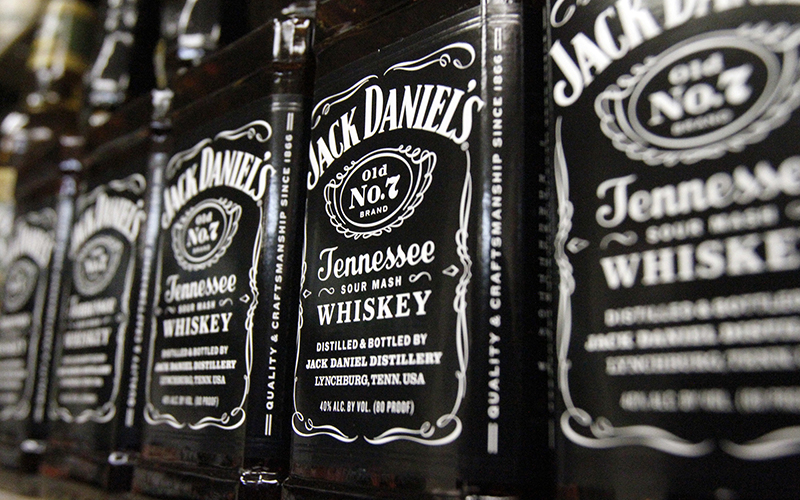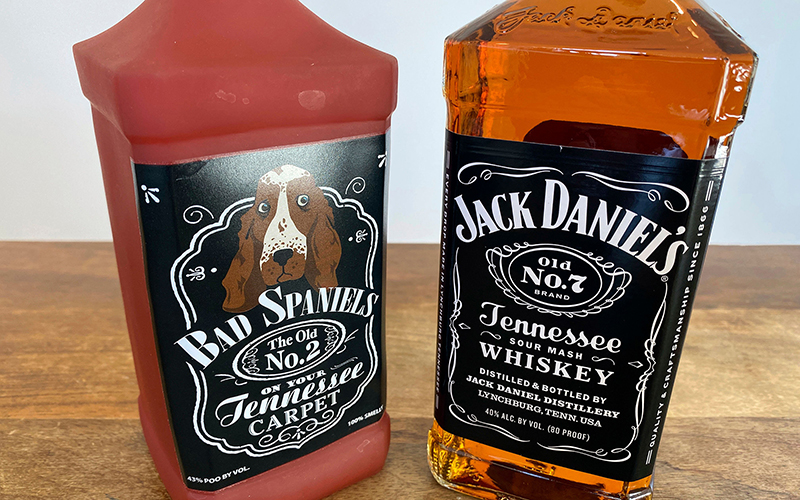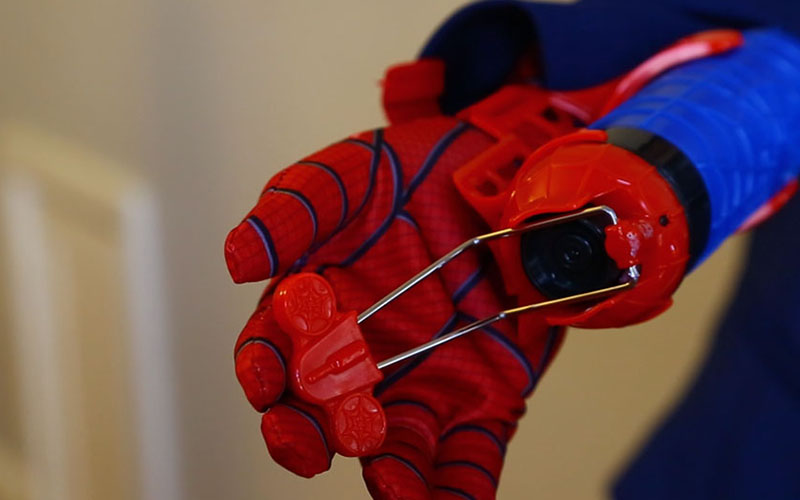WASHINGTON – The Supreme Court said Monday it will consider whether an Arizona manufacturer of pet toys infringed on Jack Daniel’s Old No. 7 trademark with its Bad Spaniels Old No. 2 squeaky toy for dogs.
An attorney for VIP Products said no one would mistake their parody product, laced with dog poop humor, with the whiskey distiller’s products.
“It doesn’t say Jack Daniel’s, it says ‘Bad Spaniels Old No. 2 On Your Tennessee Carpet’ and it has a picture of a cartoon dog on it,” said Bennett Evan Cooper.
Attorneys for Jack Daniels did not immediately respond to a request for comment Monday. But in their petition to the Supreme Court, they said that while “everyone likes a good joke,” VIP Products “confuses consumers by taking advantage of Jack Daniel’s hard-earned good will.”
Bad Spaniels is part of a line of “Silly Squeakers” toys by VIP that play on the names of alcoholic and soft drinks, from Jose the Perro, that mimics a tequila bottle, to Mountain Drool, which looks like a soft-drink bottle.
The Bad Spaniels toy mimics Jack Daniel’s a little too closely for the distiller’s comfort. The brown vinyl toy “copies the distinctive square bottle and black-and-white labeling” of a Jack Daniel’s whiskey bottle, the distiller said in its filing.
The toy does replace the whiskey’s “40% alc. by vol. (80 proof)” with “43% poo by vol. (100% smelly)” and includes a fine-print notice on the back that the toy “is not affiliated with Jack Daniel Distillery.” But other features on the mock bottle “are nearly identical,” the distiller’s petition said.
VIP Products said the design was simply part of a “playful parodic tradition,” one they say has been in use for “over half a century,” citing Topps’ Wacky Packages trading cards and musician “Weird Al” Yankovic, who has become famous for his parodies of hit songs.
The legal fight began in 2014, when Jack Daniel’s wrote to VIP demanding that the company stop producing Bad Spaniels. VIP went to court, seeking a declaration that its toy did not infringe on the distiller’s trademark, and Jack Daniel’s countersued.
A federal district court originally sided with Jack Daniel’s, ruling that Bad Spaniels did violate its trademark. That was reversed on appeal, however, with the 9th U.S. Circuit Court of Appeals ruling that the dog toy, while “surely not the equivalent of the Mona Lisa,” was still an expressive work and protected by the Rogers test.
That test, named for former film star Ginger Rogers, protects trademark use in expressive works.
Jack Daniel’s tried to appeal that ruling to the Supreme Court, but was turned down. The case went back to district court, which “grudgingly” ruled for VIP products, a decision upheld by the circuit court. That sparked the second, successful appeal to the Supreme Court.
Cooper said the Rogers test “is a more First Amendment friendly way of approaching the use of trademarks as part of expressive works.” He said products pass the Rogers test if they can show that a trademark has some artistic relevance to the expressive work and that its use is not explicitly misleading as to the source of that work.

Bottles of Jack Daniel’s Old No. 7 Tennessee Whiskey line a liquor store shelf. The distiller claims a Phoenix company’s parody dog toy, Bad Spaniels Old No. 2 on Your Tennessee Carpet, violates its trademark. (Photo by Toby Talbot/AP/Shutterstock)
The case has drawn support from a litany of trade associations and high-profile companies, including Levi Strauss & Co., Patagonia Inc., Campbell Soup and others.
In a written statement, an attorney for groups of distillers and brewers said the association is “pleased” the Supreme Court decided to take up the case this time. Steffen Nathanael Johnson’s statement said the 9th Circuit’s interpretation of the Lanham Act – which protects trademarks – and the Rogers test “threatens the alcohol beverage industry’s ability to prevent use of their trademarks in ways that appeal to minors.”
The International Trademark Association said it is not taking sides in the case, but filed a brief with the court arguing that the Rogers test should not be applied in such a broad manner. Vijay Kumar Toke, an attorney for the association, said the circuit court’s ruling moved away “from the test’s roots which are in the analysis of traditionally expressive works.”
He pointed to the district court judge’s second ruling, where the judge “said it’s hard to imagine that any trademark owner could prevail except in the most egregious of circumstances and … only by going to the Supreme Court or Congress.”
But Cooper hopes to move beyond the Rogers test, using this case as a catalyst for a national standard for parodic works.
“We think this is a really good case in which to do it because of the nature of what my client produced and what my client didn’t produce,” Cooper said Monday. “It produced a dog toy that was transformative in every respect.”
He also added that he hopes the Supreme Court decision will bring clarification as to what constitutes parody and that its decision “may avoid a lot of litigation over what are clearly parodies.”


